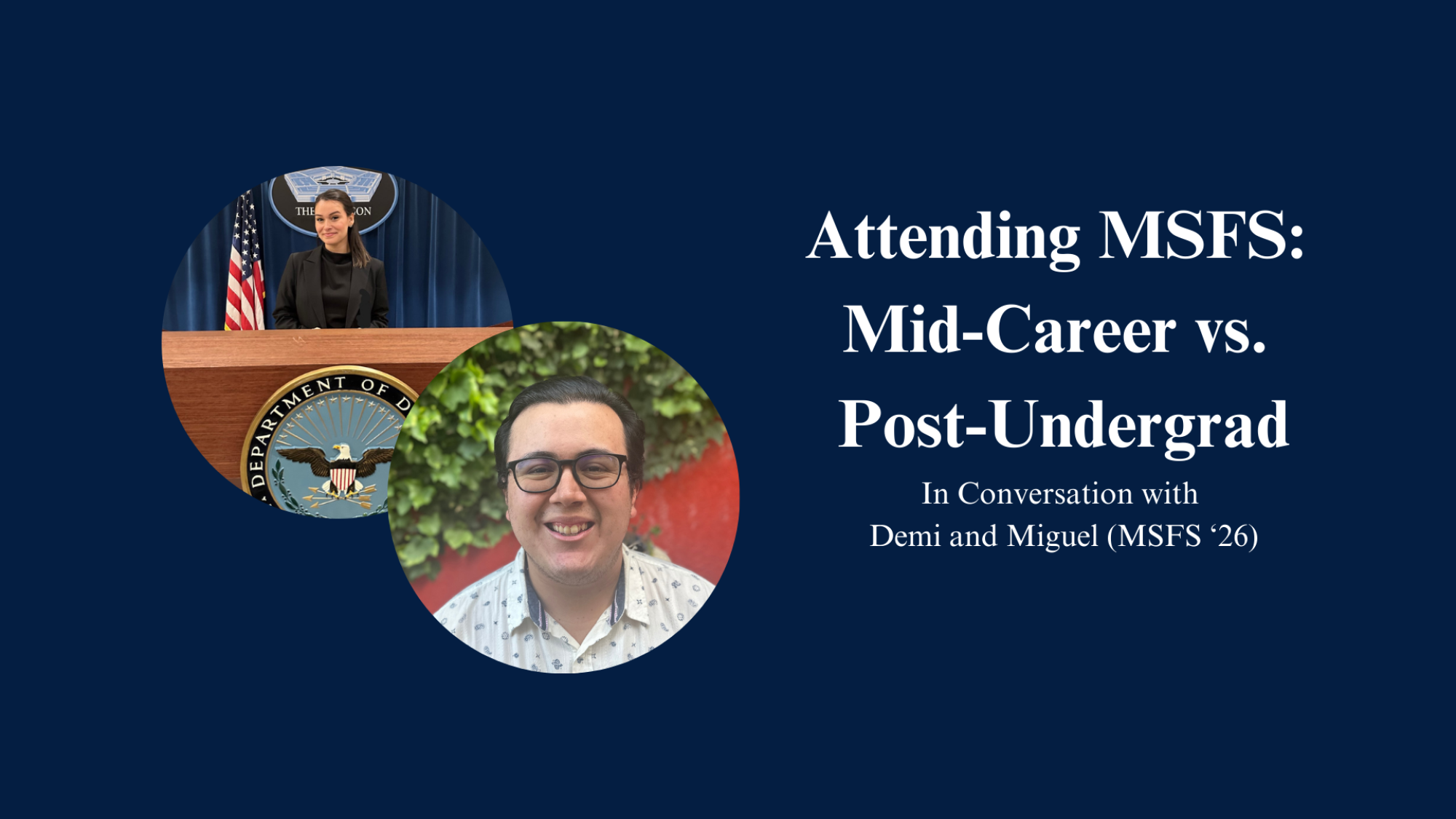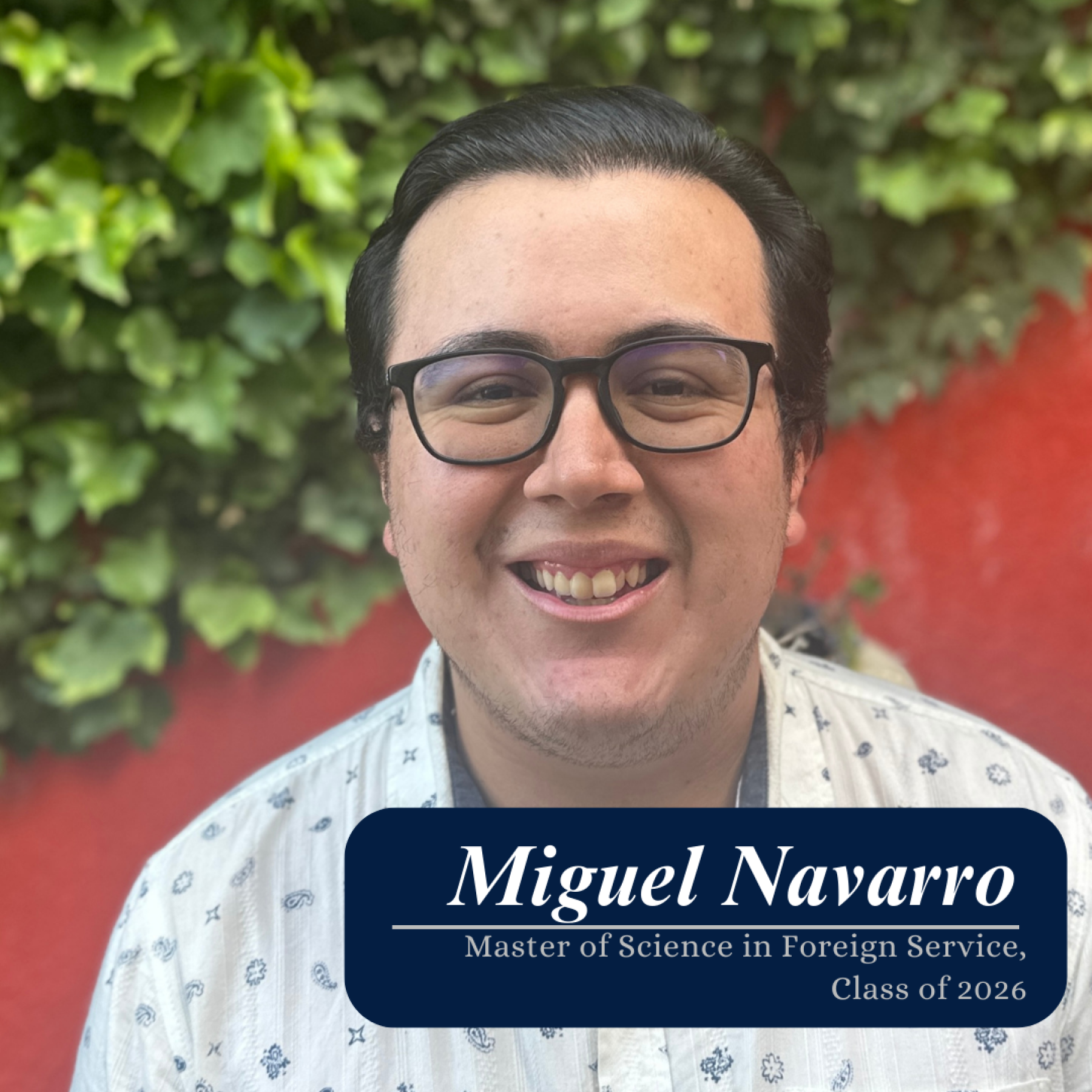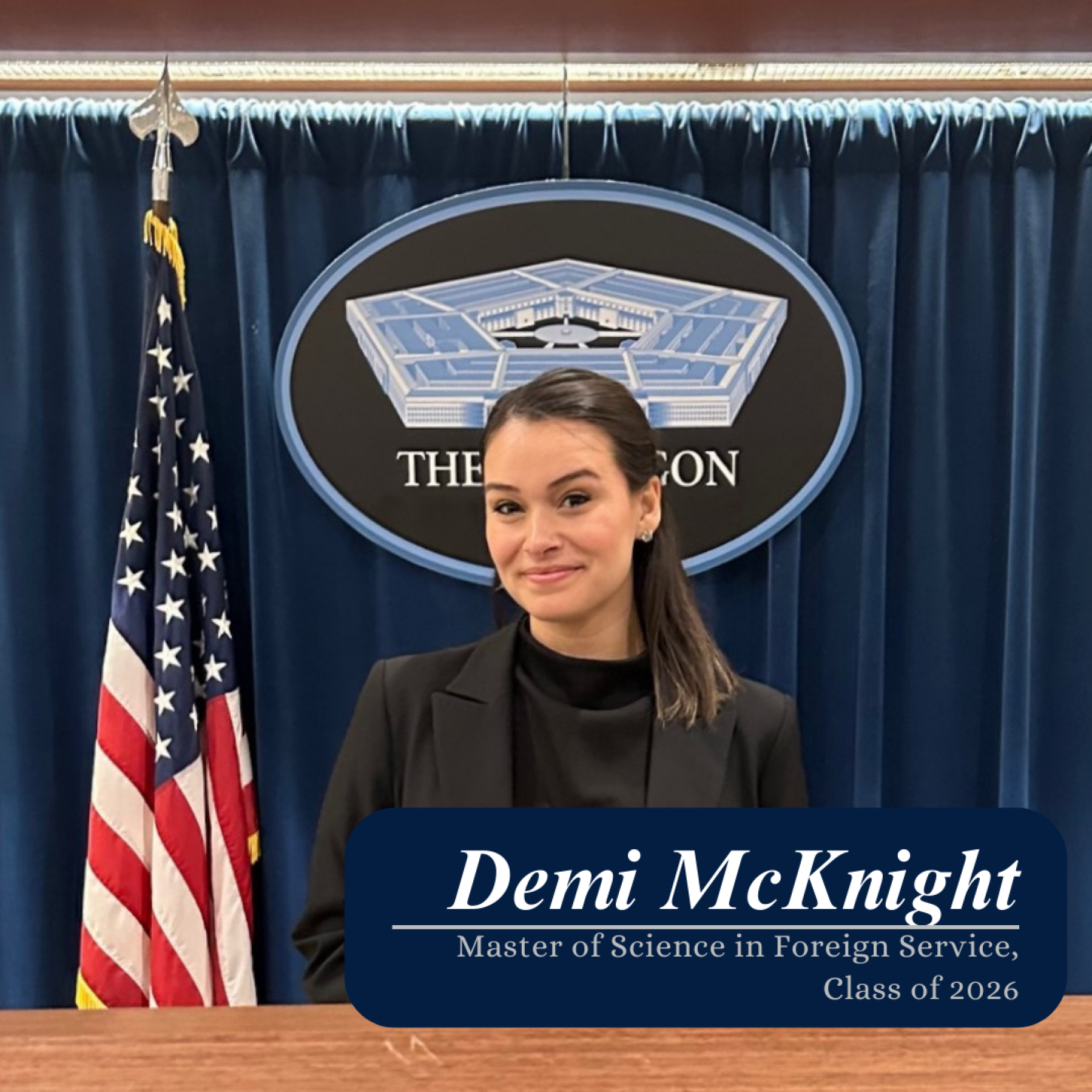Miguel: I chose to apply to the MSFS program immediately after my undergraduate studies because I felt confident in taking the next step on my existing path toward a career in public service. I graduated from the University of Portland in December 2023, triple majoring in Political Science, History, and Spanish. I served for three years in student government, had numerous campus jobs, pursued two congressional internships, conducted research in transnational crime in Latin America, and studied abroad in Granada, Spain, and Belfast, Northern Ireland. Through these undergrad experiences, I solidified my passion and clarified my interests in IR: transnational crime, great power politics, and grand strategy. Rather than stepping away from my studies, I saw this as the ideal time to immerse myself in an environment where I could deepen my expertise and prepare for a public service career in the national security establishment. Moving directly into a program like MSFS, with its rigorous curriculum, focus on practical skills, and unparalleled access to career resources, allows me to build on my undergrad momentum.
Demi: Before coming to MSFS, I had a well-developed career in supply chain and worked for some outstanding companies and consulting firms. Before a big promotion that would be demanding and life changing, I spent time reflecting on what work I found most fulfilling. I’d spent many years serving clients across manufacturing, health, consumer, and other sectors, but I found that I was ready to serve my country. I come from a military family, so service is incredibly important to me. A graduate program that could round out my work experience and add depth in public service areas was the logical next step for me.
When narrowing down programs for graduate school, I was hoping to find a school that valued past professional experience, diversity of thought and background, and close connectivity to government work. Ultimately, Georgetown’s focus on service, the international sphere, a practitioner faculty, and D.C. location made MSFS a perfect fit. Of course, the ranking as the #1 international relations program in the world affirms my choice.


